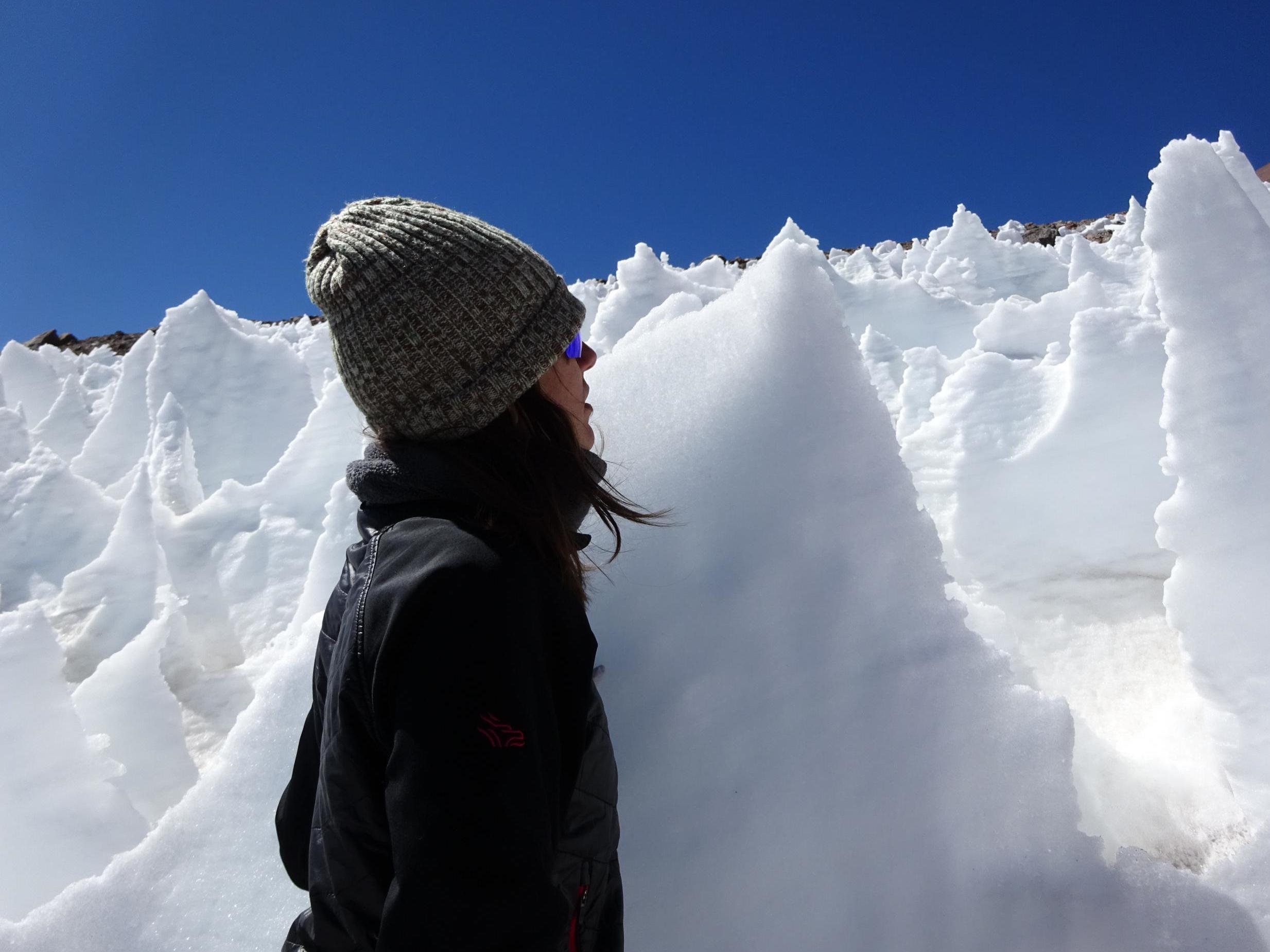Snow algae found in ‘ice spires’ could suggest there is alien life on Pluto
Organisms found in one of Earth's harshest environments could hold clues about 'upper limits of life'

Your support helps us to tell the story
From reproductive rights to climate change to Big Tech, The Independent is on the ground when the story is developing. Whether it's investigating the financials of Elon Musk's pro-Trump PAC or producing our latest documentary, 'The A Word', which shines a light on the American women fighting for reproductive rights, we know how important it is to parse out the facts from the messaging.
At such a critical moment in US history, we need reporters on the ground. Your donation allows us to keep sending journalists to speak to both sides of the story.
The Independent is trusted by Americans across the entire political spectrum. And unlike many other quality news outlets, we choose not to lock Americans out of our reporting and analysis with paywalls. We believe quality journalism should be available to everyone, paid for by those who can afford it.
Your support makes all the difference.Snow algae has been discovered in high-altitude ice spires in the remote Andes Mountains in a possible sign that alien life could thrive on Pluto.
The microbes were found in Chile near Llullaillaco, the world’s second-highest volcano. It is one of the harshest environments on Earth, home to extreme winds, temperature fluctuations and high ultraviolet radiation exposure.
The dramatic ice spires, or penitentes, are pinnacle-shaped structures that can grow up to 15ft in height and are only found at high elevations in the dry Andes. They have been discovered on Pluto and are speculated to also exist on Europa, one of Jupiter’s moons.
New research published in Arctic, Antarctic, and Alpine Research details the first signs of life found in this type of extreme environment.
Biologist at the University of Colorado Boulder noted red colouration - a telltale sign of microbial activity - in penitente fields 16,000ft above sea level. Upon bringing back samples for analysis, the researchers confirmed the presence of two algal species in the ice, the first documentation of any life forms in such an environment.
Steve Schmidt, a professor of microbial and co-author of the study, said: “We’re generally interested in the adaptations of organisms to extreme environments. This could be a good place to look for upper limits of life.”
According to researchers, these spires provide shelter for microbes by providing a source of water in an otherwise arid and nutrient-poor environment.
Dr Schmidt said: “This is a very remote area that’s difficult to access. The entire back of one of our pickup trucks had to be filled with barrels of drinking water. It’s no trivial thing to go out there, and that’s one of the reasons these formations haven’t been studied much.”
Lara Vimercati, lead author of the study and a doctoral researcher at the University of Colorado Boulder, added: “Snow algae have been commonly found throughout the cryosphere on both ice and snow patches, but our finding demonstrated their presence for the first time at the extreme elevation of a hyper-arid site.
“Interestingly, most of the snow algae found at this site are closely related to other known snow algae from alpine and polar environments.”
The name “penitente” comes from the Spanish word meaning “penitent one” and comes from their resemblance to a procession of monks in white robes doing penance.
They form in snowfields subject to a unique combination of high radiation, low humidity, and dry winds.
Ms Vimercati said: “Our study shows how no matter how challenging the environmental conditions, life finds a way when there is availability of liquid water.”
Join our commenting forum
Join thought-provoking conversations, follow other Independent readers and see their replies
Comments